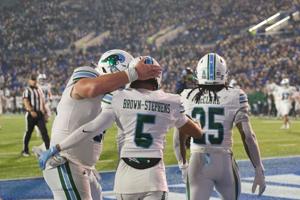Many directors take years to establish their unique style, but some manage to create remarkable films right from the start. Their strong debuts not only set the tone for their careers but also leave a lasting impact on the film industry. Here are 20 standout debut films from directors who made a significant mark with their first feature.
Trailblazing First Features
Julie Dash made history with her film Daughters of the Dust, released in 1991. This cinematic exploration of Gullah culture is notable for being the first theatrical feature directed by an African American woman to receive a general release in the United States. While its nonlinear narrative and heavy dialect can be challenging, the film offers profound rewards for those willing to engage deeply with its themes of identity and family.
Another significant entry is Spike Lee‘s She’s Gotta Have It, which debuted in 1986. Lee’s film opened doors for African-American representation in cinema and showcased his exceptional vision. It became a financial success, earning over $7 million on a modest budget, solidifying Lee’s status as a filmmaker to watch.
Moving to a more visceral experience, Steve McQueen‘s debut Hunger (2008) presents a harrowing portrayal of Bobby Sands, played by Michael Fassbender, during a hunger strike. The film is notable for its striking technical prowess, including a gripping 17-minute continuous shot that leaves a lasting impression.
In 1994, Kevin Smith introduced the world to Clerks, a film that captured the essence of slacker culture. This indie classic not only launched Smith’s career but also birthed beloved characters like Jay and Silent Bob, paving the way for a franchise that continues to resonate with audiences.
Iconic Directorial Debuts that Shaped Cinema
Charles Laughton, primarily known as an actor, directed only one film: the haunting noir classic The Night of the Hunter (1955). Robert Mitchum’s chilling performance as a psychopathic preacher makes this film a standout in American cinema, and its faithful adaptation of Davis Grubb‘s novel adds to its legacy.
Rob Reiner’s This Is Spinal Tap (1984) revolutionized the mockumentary genre, blending humor and insightful commentary on the music industry. Reiner’s transition from actor to director was met with acclaim, solidifying his place in Hollywood during the 1980s and 1990s.
Clint Eastwood’s directorial debut, Play Misty For Me (1971), showcases his talent behind the camera. The suspenseful narrative of obsession features Eastwood in a starring role, revealing his prowess in crafting compelling stories that captivate audiences.
Sidney Lumet’s 12 Angry Men (1957) remains a powerful exploration of justice and morality. This debut film effectively captures the essence of human drama and societal issues, highlighting Lumet’s ability to create gripping narratives that resonate across generations.
In 2017, Greta Gerwig made her directorial debut with Lady Bird, a coming-of-age story that blends humor and poignancy. Starring Saoirse Ronan, the film received widespread acclaim and set the stage for Gerwig’s future successes in cinema.
One cannot overlook the impact of George Romero‘s Night of the Living Dead (1968), which redefined the horror genre. This film not only introduced the concept of the modern zombie but also served as a cultural commentary on the anxieties of the late 1960s.
Celine Song’s Past Lives, released in 2023, exemplifies the delicate handling of relationships and the passage of time. This film showcases Song’s subtlety and emotional depth, marking her as a significant voice in contemporary cinema.
As we reflect on these remarkable debut films, it becomes evident that each director has contributed uniquely to the art of filmmaking. Their initial works not only showcase their talents but also often tackle significant themes that resonate with audiences worldwide. These films continue to inspire both established and emerging filmmakers, reminding us of the power of storytelling in cinema.






